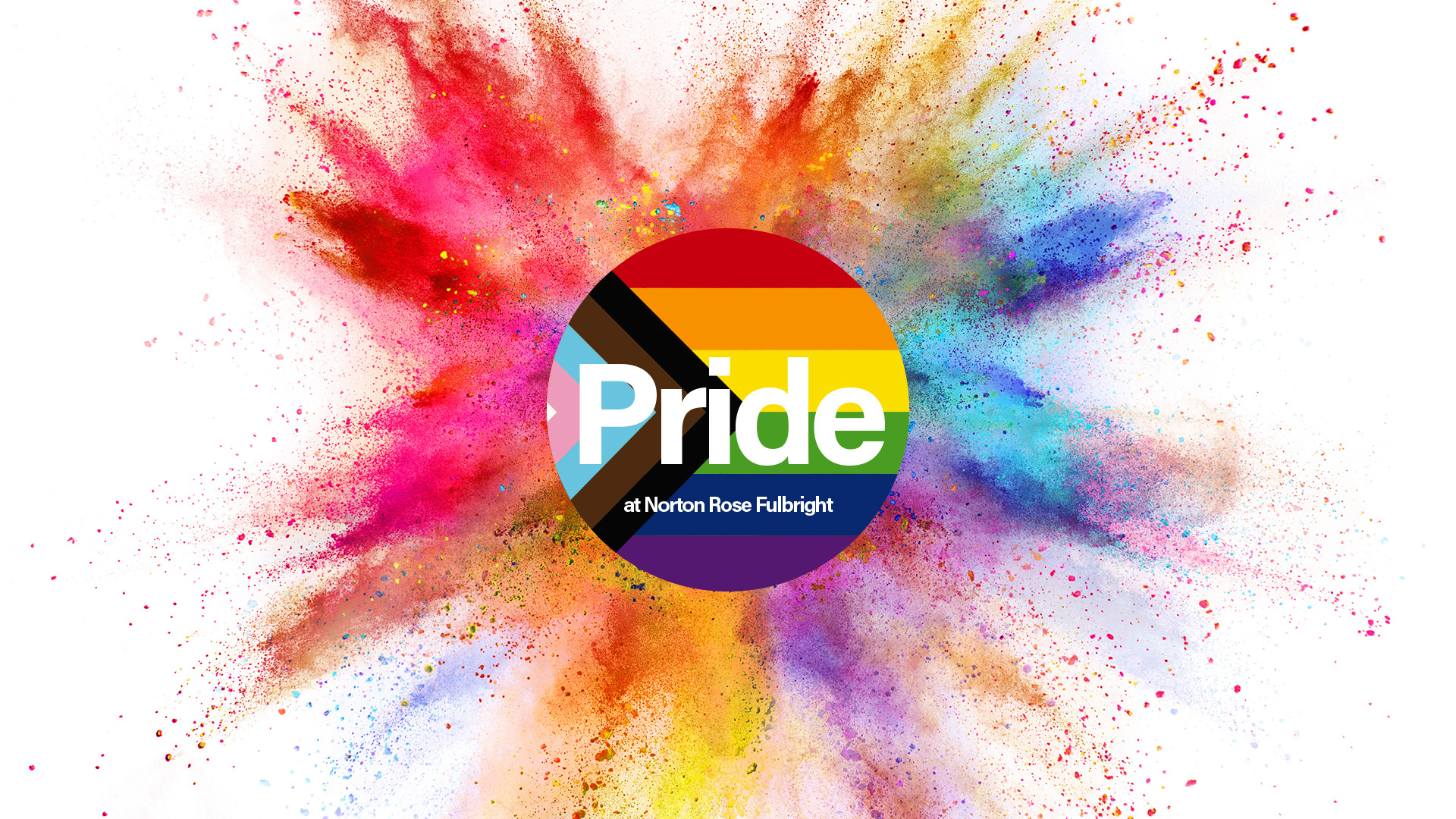In our third interview for Pride month, Alaika talks about the process of understanding zir own identity and why it’s so important to share stories and encourage open conversations.
Alaika started at Norton Rose Fulbright in 2017 as a vacation scheme student. Ze remembers reading about the firm’s diversity and inclusion policy before starting and seeing very visible support for the LGBTIQ+ community, which sparked a process of education and self-reflection.
“I remember seeing a Pride mug sitting on a colleague’s desk when I first joined NRF, and then a piece of artwork celebrating the LGBTIQ+ community in one of the corridors. I was just starting out in my career and wanted to understand all these areas of the firm’s culture, so began reading more about what being LGBT meant, then the ‘Q’ and ‘I’ – and then wondering what the plus actually stood for!”
It was a period of learning that began a thought process, which, Alaika says, prompted zir to look more at zir own relationship at the time.
“I had been in a heterosexual relationship for two years but started to feel that I was staying in it just because that’s what was expected of me.
“I come from a Muslim community where the norm is that, after a few years in a relationship, you marry and start a family. I wasn’t unhappy with my boyfriend but realised it was more of a friendship. I felt a much stronger connection with my female friends, which made me think more about different forms of romantic and sexual attraction.”
Understanding asexuality
It was at this time that Alaika discovered the Asexual Visibility and Education Network (AVEN).
“I’d done a lot of reading and listening to people’s stories and began to understand that I was asexual – someone who doesn’t experience sexual attraction. I feel attraction in a romantic but non-sexual way and the connections are not gender specific, it depends entirely on the person – it’s known as panromantic.
“I also believe in a more fluid notion of gender – some days I feel like shaving my head; the next I might feel like wearing a flowery dress. It can be confusing for some people that I present differently. That’s also why I use the pronouns ze/zir.”
Having spent this time building zir own understanding, Alaika felt ready to come out to zir mum. “I explained that I was asexual but equally, as a 21 year-old, didn’t fully know what the boundaries were yet.”
Alaika’s mother was, ze says, incredibly supportive and started to educate herself and build her own understanding. “She really recognised the gender fluidity – looking back, she could see it in me from a young age. People used to tell her that I’d grow out of the ‘tomboy phase’ but we both knew I wouldn’t!”




